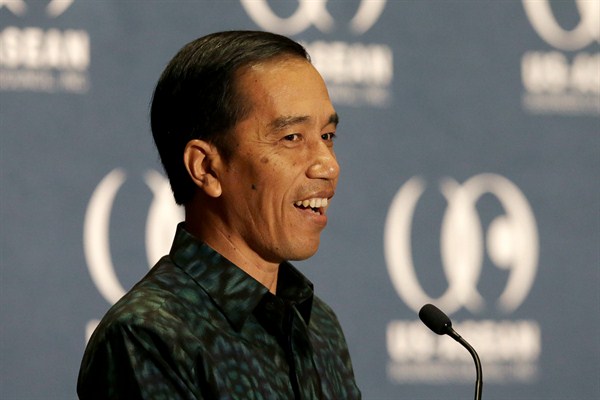Editor’s note: This article is part of an ongoing WPR series on the South China Sea territorial disputes and the various claimant countries’ approaches to addressing them.
Last weekend, a Chinese coast guard vessel intervened to free a Chinese fishing boat being towed by Indonesian maritime authorities. It had been caught fishing illegally in waters claimed by Indonesia as part of its exclusive economic zone surrounding the Natuna Islands. In an email interview, Brian Harding, director for East and Southeast Asia at the Center for American Progress, discusses Indonesia’s role in the South China Sea disputes.
WPR: How have Jakarta and Beijing managed their overlapping claims—Indonesia’s exclusive economic zone (EEZ) and China’s so-called nine-dash line—in the South China Sea in recent years, and are there precedents for this kind of incident?

